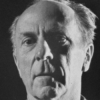Edward Weston

Edward Weston
Edward Henry Westonwas a 20th-century American photographer. He has been called "one of the most innovative and influential American photographers…" and "one of the masters of 20th century photography." Over the course of his 40-year career Weston photographed an increasingly expansive set of subjects, including landscapes, still lifes, nudes, portraits, genre scenes and even whimsical parodies. It is said that he developed a "quintessentially American, and specially Californian, approach to modern photography" because of his focus on the people and...
NationalityAmerican
ProfessionPhotographer
Date of Birth24 March 1888
CityHighland Park, IL
CountryUnited States of America
A lifetime can well be spent correcting and improving one's own faults without bothering about others.
My own eyes are no more than scouts on a preliminary search, for the camera's eye may entirely change my idea, even switch me to different subject matter. So I start out with my mind as free from image as the silver film on which I am to record, and I hope as sensitive.
An excellent conception can be quite obscured by faulty technical execution or clarified by faultless technique.
I am not limiting myself to theories, so I never question the rightness to my approach.
I find myself every so often looking at my ground glass as though the unrecorded image might escape me!
...through this photographic eye you will be able to look out on a new light-world, a world for the most part uncharted and unexplored, a world that lies waiting to be discovered and revealed.
In common with other artists the photographer wants his finished print to convey to others his own response to his subject. In the fulfillment of this aim, his greatest asset is the directness of the process he employs. But this advantage can only be retained if he simplifies his equipment and technic to the minimum necessary, and keeps his approach from from all formula, art-dogma, rules and taboos. Only then can he be free to put his photographic sight to use in discovering and revealing the nature of the world he lives in.
Good composition is merely the strongest way of seeing.
It seems so utterly naive that landscape - not that of the pictorial school - is not considered of "social significance" when it has a far more important bearing on the human race of a given locale than excrescences called cities.
One does not think during creative work, any more than one thinks when driving a car. But one has a background of years - learning, unlearning, success, failure, dreaming, thinking, experience, all this - then the moment of creation, the focusing of all into the moment. So I can make without thought, fifteen carefully considered negatives, one every fifteen minutes, given material with as many possibilities. But there is all the eyes have seen in this life to influence me.
Clouds, torsos, shells, peppers, trees, rocks, smoke stacks, are but interdependent, interrelated parts of a whole, which is life.
I don't care if you make a print on a bath mat, just as long as it is a good print.
Is love like art - something always ahead, never quite attained.
My own eyes are no more than scouts on a preliminary search, or the camera's eye may entirely change my idea.